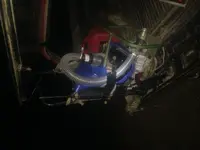dash4cash
Jr. Member
- Joined
- Apr 9, 2018
- Messages
- 98
- Reaction score
- 101
- Golden Thread
- 0
- Location
- Saukville, WI
- Detector(s) used
- Garrett Ace 300
Garrett AT max
- Primary Interest:
- All Treasure Hunting
I have been bitten by the gold bug lol, and was wondering what tools you would not be able to go prospecting without. I have most of the small hand tools needed, classifiers, pans, buckets, hand dredge sucker, etc. I was wondering what else may help me be more successful on the river.
Thanks, Carl
Thanks, Carl
Amazon Forum Fav 👍
Upvote
0





